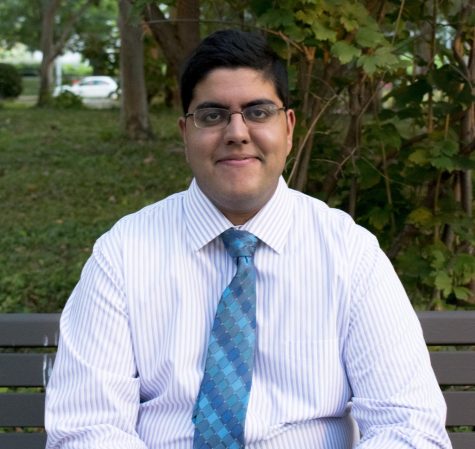Cancer drug’s inner workings help explain why some patients don’t clot
October 2, 2014
What if you were given chemotherapy drugs to fight cancer, but knew that those drugs could increase the likelihood of blood clots? A recent five-year long study by Dr. Lalitha Nayak of University Hospitals found that, unlike most cancer drugs, Bortezomib will reduce cancer, but will not increase clotting.
Nayak found that Bortezomib signals DNA to increase the expression of Kruppel like-factors, or KLF, a type of transcription factor which lowers the chance of blood clots forming.
Bortezomib is normally used to treat patients with multiple myeloma, a bone marrow cancer. As a hematologist and oncologist, Nayak saw patients with bone marrow cancer on the drug and took note of the fact that they were not experiencing increased clotting. The question was how Bortezomib did this.
To begin her study, Nayak took to the laboratory under her mentor, Dr. Mukesh Jain. First, Nayak injected mice with Bortezomib. She then studied the amount of clotting in the carotid artery, the blood vessel that supplies the brain with blood.
The process is a complex modern marvel, involving dissecting a mouse after they put it to sleep.
“We anesthetize the mouse and isolate the artery,” said Nayak. “We then place a probe under the vessel.”
The probe sensed the pulse in the artery and recorded when there were clots forming. At the same time, Nayak used a microscope to see the clot as it formed. By doing this, she saw that, compared to normal mice, Bortezomib decreased clotting to below normal levels.
“The next thing we want to do is study the drug’s effects at the molecular level,” said Nayak. To do this, she studied the effects of the drug on cells. Nayak was already familiar with KLF from her work in the Jain laboratory, and so she decided to look there. She found that the drug increased the expression of KLF, something that cancer and other cancer drugs usually decrease.
Because of drugs like Bortezomib and studies like Nayak’s, cancer fighting has gotten a lot smarter over the years. The archaic practices of large amounts of chemotherapy and radiation are a thing of the past.
Bortezomib only attacks cancer cells that have a particular pathway, which is extremely active in cancerous cells, but not active in normal cells. The drugs cause a controlled cell death, which stops the cancer from spreading, without affecting healthy cells.
“That is why it’s such a favorable drug,” said Nayak. “It has such few side effects.”



